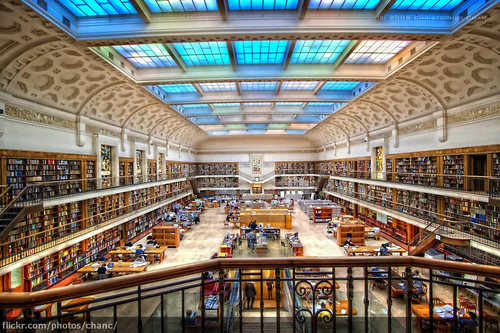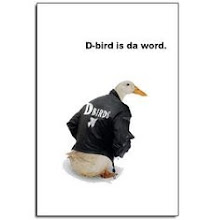
(The Mitchell Library in Sydney:: photo used under Creative Commons license)
From various sources on my Twitter stream, I have been following the stories about library closures in the UK. The Guardian has a thoughtful, thought-provoking and sometimes rather amusing article about the secret life of libraries; it's by Bella Bathurst. They have always had a dusty image – and never more so than now – but libraries are at the heart of our communities. With the axe about to fall, Bella Bathurst reveals just what we're about to lose.
Some more quotes:
Discussing the types of books stolen in various parts of the country, she observes: among all communities and in all parts of Britain, our old passion for self-improvement remains vivid.
...
But the cuts also underscore a deeper confusion about what libraries are: what they do, who they serve, and – in an age where the notion of books itself seems mortally flawed – why we still need them. What's the point of buildings filled with print? Isn't all our wisdom electronic now? Shouldn't libraries die at their appointed time, like workhouses and temperance halls?
...
The great untold truth of libraries is that people need them not because they're about study and solitude, but because they're about connection.
...

(Seattle Public Library::photo used under Creative Commons license)
...reading seems to be becoming an increasingly alien concept for children. "The pace of life is different now, and people expect art to happen to them. Music and film do that, a CD will do that, but you have to make a book happen to you. It's between you and it. People can be changed by books, and that's scary. When I was working in the school library, I'd sometimes put a book in a kid's hands and I'd feel excited for them, because I knew that it might be the book that changed their life. And once in a while, you'd see that happen, you'd see a kind of light come on behind their eyes. Even if it's something like 0.4% of the population that that ever happens to, it's got to be worth it, hasn't it?"
The article concludes thus:
The libraries' most powerful asset is the conversation they provide – between books and readers, between children and parents, between individuals and the collective world. Take them away and those voices turn inwards or vanish. Turns out that libraries have nothing at all to do with silence.
It's a terrific article, very much worth reading in its entirety. I want to think some more about its ideas, such as connection, and conversation, and art happening, the sort of engagement involved in the act of reading. This week, as every week, I will have the joy and pleasure and sheer bloody fun of putting a book in the hands of a kid and watching their eyes light up, or (they are teenagers after all) their body language just relax that small bit that is (in reality) a decibels-loud acknowledgement that the book and the transaction and the library were good things for them. And so many of them have fabulous smiles, don't they?
Cheers
Ruth






















No comments:
Post a Comment